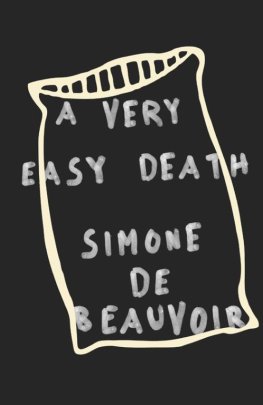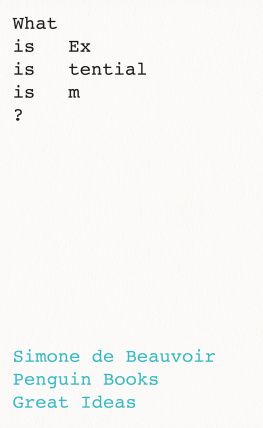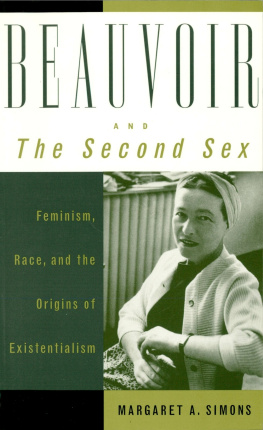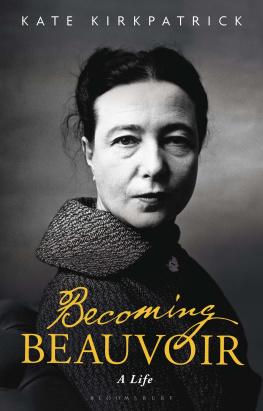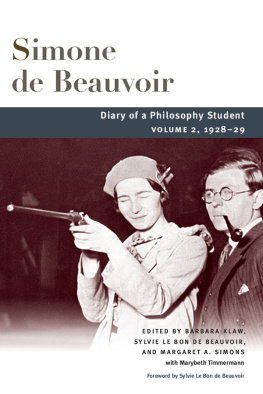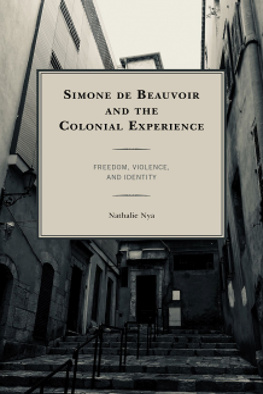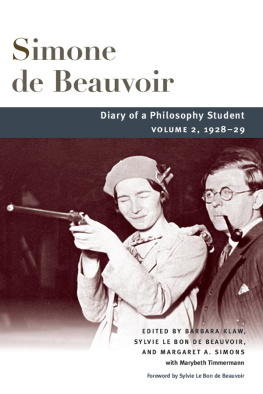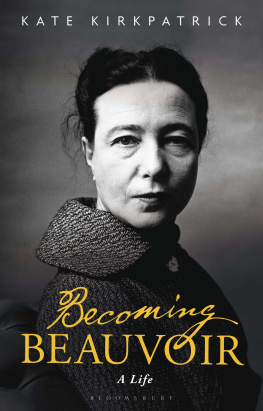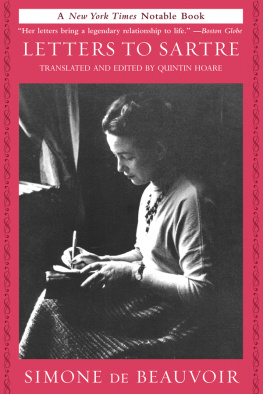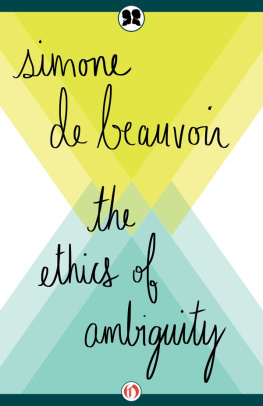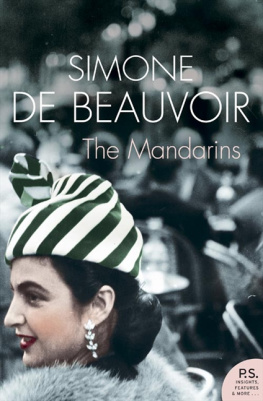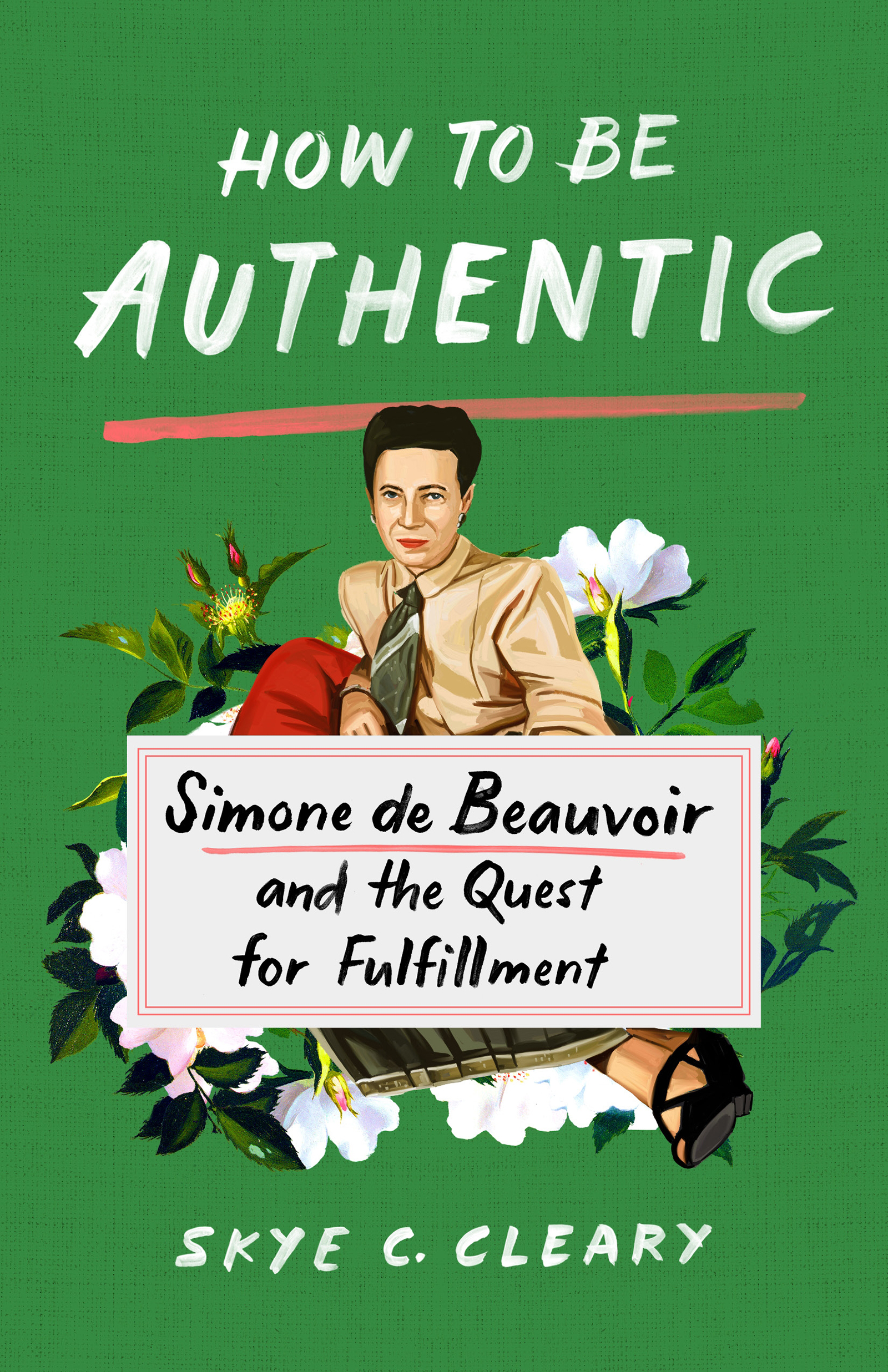Contents
Guide
Pagebreaks of the print version
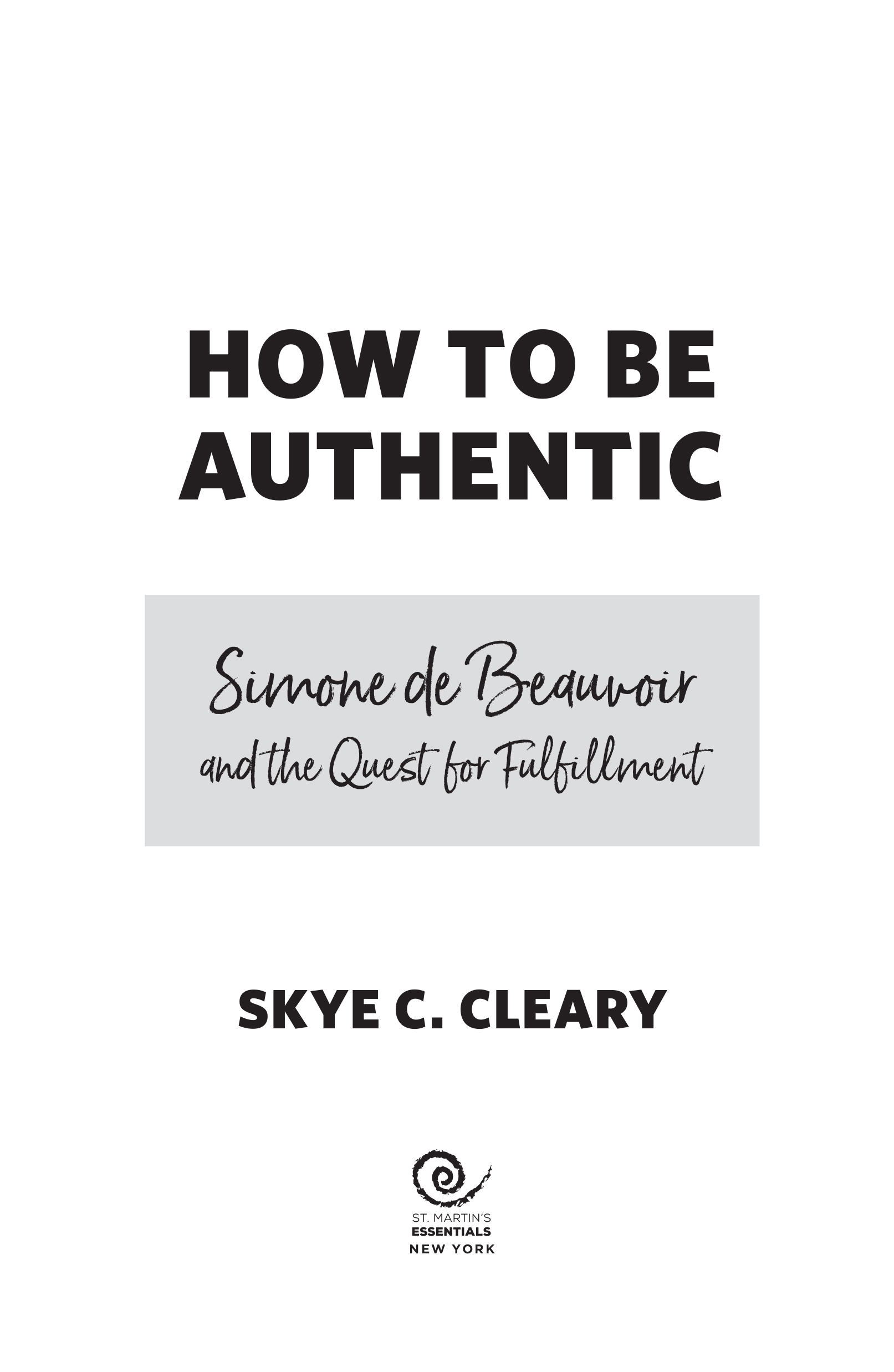
The author and publisher have provided this e-book to you for your personal use only. You may not make this e-book publicly available in any way. Copyright infringement is against the law. If you believe the copy of this e-book you are reading infringes on the authors copyright, please notify the publisher at: us.macmillanusa.com/piracy.
To Ali
My philosophy must be from life.
Diary of a Philosophy Student, Volume 1
BECOMING AN AUTHENTIC REBEL
I feel within me something tumultuous that frightens me, an intensity that exhausts me. But I accept the great adventure of being me.
Diary of a Philosophy Student, Volume 2
Just be yourself. The just makes it sound so simple. If it were simple, the instruction wouldnt be necessary. But as it turns out, it is necessary. We crave authenticity precisely because it is so painfully rare to find and difficult to achieve. In the end, we have to fight to become authentic. This book is meant to assist in the quest.
Authenticity has become a devalued currency, attenuated to the point of meaninglessness. The meaning of Just be yourself is anyones guess. Leadership literature advises us on how to fake authenticity. It promises to reveal the secrets of authenticity, to help us get ahead at work. Oprah Winfrey says if shed known authenticity was so profitable, she would have done it much sooner. Bren Brown, bestselling author of The Gifts of Imperfection, defines authenticity as the daily practice of letting go of who we think were supposed to be and embracing who we are. Letting go of who were supposed to be sounds right, but how do we know who we are? To ensure our lasting happiness, were supposed to embrace our true selves. But what is a true self, and do we even have one?
If were going to use the word authentic, it would be helpful to understand what it really means, and if its something we can have or something we must do. We might wonder who has access to it, how we can get access to it, and how setting it as a target would affect our lives. Is rapper Lizzo authentic when she loves herself out loud and rejects other peoples beauty standards? Or is authenticity more like the philosopher Angela Davis, who bravely speaks out against injustices such as sexism, wars, and prisons as she acts upon her beliefs? Perhaps we zero in on things that seem obviously inauthentic: the incessant lies of politicians, gossipy musings of co-workers and friends, and selfies by Instagram influencers beholden to filters. But if they are inauthentic, what makes them so?
French existential philosopher Simone de Beauvoir pointed to authenticity as a foundational element of the meaning of life. But she meant something very different by the idea than the familiar parade of platitudes about being true to a pure form of yourself. For Beauvoir, there is no fixed essence to our being, since we are always becoming something other than what we are today. For Beauvoir, existence precedes essence, meaning that we exist first and then spend the rest of our lives creating who we are (our essence). She thought that there is no true self to discover, but only a vibrant self that we create through our choices. In other words, we are creative nothings.
To become authentic means to create our own essence. Its the creation that is vital here. We dont discover ourselves, we make ourselves. Authenticity is a way of expressing our freedom: to realize and accept that we are free; to be lucid about what we can and cant choose about ourselves, our situation, and others; and to use our freedom as a tool to shape ourselves. Our selves are not the product of a chain of impersonal causes and effects. Creating ourselves is an art formthe act of intentionally choosing who we become.
Authenticity is a poetic quest, a continuous process of self-creation and self-renewal, with unique rhymes and rhythms, verses and stanzas, muses and missteps. There are no particular rules or prescribed goals to guide us in our style. We have to fashion authenticity for ourselves. And its how we compose it that matters.
Although authenticity is a quest, its not a solo one. Authenticity isnt something you do, or even could do, on your own for two key reasons. One, there is an ethical dimension to Beauvoirs understanding of authenticity. We are always in the world with other people, interacting with them, with some awareness of what they want for us and what we want for them. Sometimes others uplift. Sometimes others obstruct. Either way, our lives are inextricably bound with others. And two, we can discover aspects of ourselves in others stories, even, and perhaps especially, in the mistakes and delusions. Becoming more aware of ourselves, others, and our possibilities for growth fortifies us along our quests for fulfillment.
Authenticity is about forging our own paths, but it doesnt mean we get to do whatever we like. For Beauvoir, freedom without responsibility is meaningless. Responsibility means acknowledging that we are interconnected, and that we live situated in a particular time and place. Beauvoirmore so than any other philosopheris unique in helping us navigate this tension between riding our own freedom and maneuvering through a world filled with others trying to do the same.
Beauvoir wrote, Ones life has value so long as one attributes value to the life of others, by means of love, friendship, indignation, compassion. Love, friendship, and compassion are fairly standard on peoples lists of important things. But indignation is not. She means indignation against injustices in the world. This is why compassion for others is essential to authenticity and its also where rebellion comes inrebellion against oppression and rebellion for every persons right to freely create their own lives.
In the lead-up to World War II, Beauvoir tended toward pacifism, but upon seeing the spread and horrors of fascism, she realized the importance of humanism, solidarity, and resistance. She lived through Nazi-occupied Paris. Her life partner, Jean-Paul Sartre, spent nine months as a prisoner of war. Many of her friends mysteriously disappeared. Beauvoir launched a resistance group but later disbanded it because people in other resistance groups started getting arrested and vanishing. In 1939 she wrote, History took hold of me, and never let go thereafter. The ethics of authenticity also never let her go.
Beauvoir captures the ethical dimension of authenticity with the idea of intersubjectivity, that is, the mutual recognition and respect for one anothers freedom. In one of her most provocative essays, Must We Burn Sade?, Beauvoir examined the possibilities of intersubjectivity in sexual sadism. The Marquis de Sade was an eighteenth-century libertine who enjoyed violence, sexual cruelty, and performing acts of torture.
Beauvoir saw Sade as an example of someone who was authentic in the sense that he created his own rules, was uninhibited by social mores, and was passionate about writing and sadism. But he wasnt authentic from an existential perspective because he confused power and freedom. He turned scandal into a duty, ignored social inequality, robbed his victims of their freedom by turning them into passive objects of his desires, and his actions were tyrannical.
The implication of Beauvoirs thinking here is that egoism such as Sades might feel to you as true to yourself. But this way of living overlooks the interconnectedness of our existences. Authenticity isnt a selfish, inward-only quest. Theres a moral dimension to authenticity because we coexist with others. Existential freedom entails a responsibility to others because we share the same human condition.


